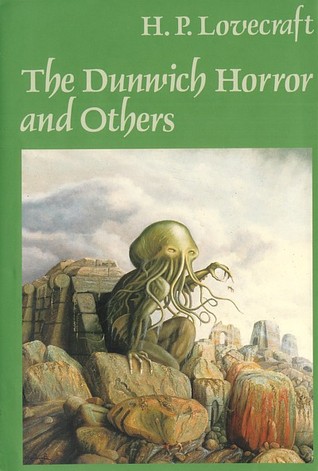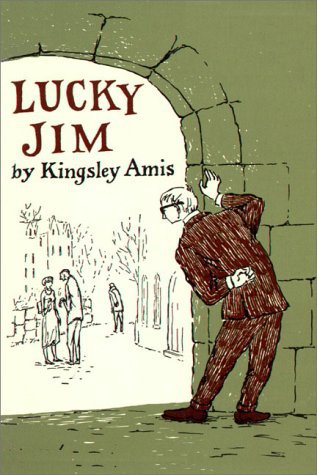After reading The Dunwich Horror and Others, the first thing I have to say is that I should have been reading H.P. Lovecraft a long time ago. I'd always seen mentions of Lovecraft as being influential to horror/sci-fi writers and I should have checked him out earlier. I had bought a giant edition of all of his works shortly before we started this reading project and I only read a couple of his Poe inspired earlier works that didn't seem anything special and figured that someday I'd get around to reading some more... So since there are a couple of Lovecraft short story collections on the Horror list, I decided to read the stories that make up on of the more popular collections to really get a sense of what Lovecraft was about. And I was totally absorbed for a few days while I read these stories.
The first few stories were good (In the Vault, Pickman's Model) but then as I got to some of his longer more famous stories I was totally blown away. These include : The Rats in the Walls - about a man restoring the haunted home of his ancestors - was totally scary. The Colour Out of Space - about a meteorite that slowly poisons a farmer's land - was terrific and even scarier. The Whisperer in Darkness - about weird alien beings that terrorize a man in his farm.- had a terrific ending. The Thing on the Doorstep - in which a man's wife uses magic to slowly switch bodies with him for evil purposes- had a great twist ending. The Shadow Over Innsmouth - where a man visits a town taken over by a cult that worships alien beings - was very suspenseful. And then there are probably his two most famous stories - The Dunwich Horror and The Call of Cthulu - both of which are famous for good reason.
The Dunwich Horror fits quite a bit of story into just 50 pages or so and is kind of hard to sum up; but it has magic, weird alien beings and a scary half man half monster. The Call of Cthulu is about someone piecing together a couple of different stories to discover the existence of the monster Cthulu.
I greatly enjoyed all of these stories. I liked how Lovecraft could fit a novel's worth of story into just 20-60 quick moving pages. There is also some interconnection between the stories which ties everything together into the same "universe" and allows a greater picture of Lovecraft's world to emerge slowly bit by bit. Highly recommended for people wanting some scary weird stories. A+



